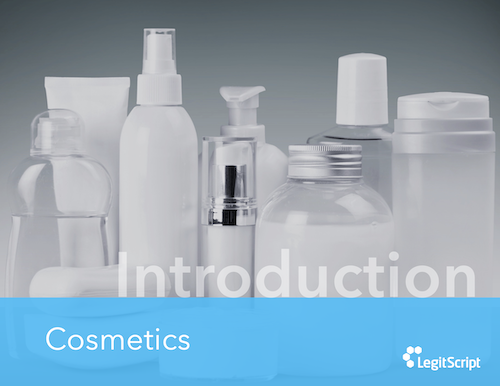On December 29, 2022, Congress passed major reforms to cosmetics laws that go into effect in 2023. Read this blog post to understand the changes, and download our Cosmetics Introduction to better understand the legal differences between cosmetics and drugs.
The Modernization of Cosmetics Regulation Act of 2022 (MOCRA) Goes Into Effect in 2023
Recently, the FDA experienced a much-anticipated regulatory overhaul —- one that some have been waiting decades for. When MOCRA passed late last year, it became the first major reform to the FDA’s cosmetics authority since 1938.
This groundbreaking legislation amends the Federal Food, Drug, and Cosmetic Act (FDCA) to include major changes to cosmetics companies’ legal requirements, including provisions imposing stringent manufacturing, reporting, and registration responsibilities. It also expands the FDA’s oversight capabilities in an attempt to ensure safer cosmetics.
Let’s break down these changes individually, and discuss how it may impact payments organizations and platforms.
Key Takeaways: Changes to the Regulation of Cosmetics
This major overhaul of cosmetics legislation isn’t just impacting the cosmetics industry — but also every industry that partners with them. Cosmetics manufacturers and retailers have about a year to understand and meet the new requirements, but the complexity of the new legislation could cause inadvertent noncompliance (not to mention intentional negligence). Before we discuss those challenges, let’s take a look at the changes.
🚩Though MOCRA was signed into law in 2022, the bulk of the changes don’t go into effect until December 29, 2023.
Here are some of the key takeaways:
- All domestic and foreign facilities manufacturing cosmetics must register every two years with the FDA — starting December 29, 2023. Furthermore, they are required to submit lists of cosmetic products sold in the US, including information about the products’ ingredients, on an annual basis.
- There are heightened safety requirements for cosmetics products. MOCRA will require manufacturers to keep adequate substantiation of records demonstrating that their products and ingredients are safe. Any product that does not have adequate safety substantiation may be considered adulterated.
- Cosmetics product labels must provide additional information. In order to improve reporting of adverse events, cosmetics companies will be required to list contact information and provide more information on fragrance allergens, as well as make clear whether the product is only intended for use by a licensed professional.
- Cosmetics companies are now required to keep records of adverse events and to report serious adverse events to the FDA within 15 days of receiving the report.
Along with these key requirements, the FDA is also required to promulgate Current Good Manufacturing Practice (CGMP) Regulations for cosmetics, and to create standards for testing cosmetics products for asbestos — a known human carcinogen.
Let’s take a look at how these changes may impact payments and platform organizations.
Greater FDA Oversight Means More Scrutiny of Cosmetics Products
MOCRA’s increased FDA oversight for cosmetics includes new enforcement authority including but not limited to mandatory product recalls and suspending facilities’ registrations.
Payments companies and e-commerce platforms should keep these changes to cosmetics laws in mind as they vet potential merchants and review the catalogs of current merchants. LegitScript experts are staying abreast of changing cosmetics regulations to help ensure our partners’ merchants are adhering to these new standards when they go into effect.
Want to Learn More?
LegitScript tracks regulatory trends related to the sale of cosmetics and closely monitors the commercial internet for merchants engaged in problematic sales of these products.
Download your copy of our Cosmetics Introduction using the button below and you’ll discover:
- How cosmetics are different than drugs
- When a product is a cosmetic and a drug
- When a cosmetic crosses the line
- High-risk “cosmetics” to watch out for





